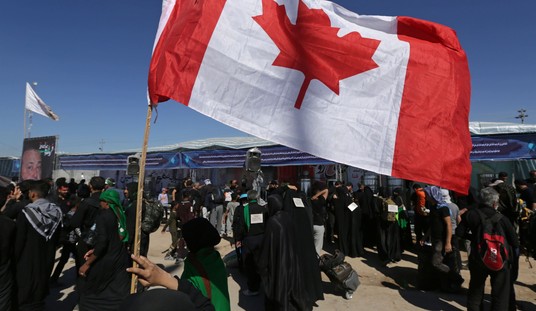A hard tonic that mixes only too well, unfortunately, with reports like this one of Bush “writing checks to the Georgians without knowing what he had in the bank,” as one senior U.S. official put it.
As bad as the bloodying of Georgia is, the broader consequences are worse. The United States fiddled while Georgia burned, not even reaching the right rhetorical level in its public statements until three days after the Russian invasion began, and not, at least to date, matching its rhetoric with anything even approximating decisive action. This pattern is the very definition of a paper tiger. Sending Secretary of State Condeleezza Rice to Tbilisi is touching, but hardly reassuring; dispatching humanitarian assistance is nothing more than we would have done if Georgia had been hit by a natural rather than a man-made disaster.
The European Union took the lead in diplomacy, with results approaching Neville Chamberlain’s moment in the spotlight at Munich: a ceasefire that failed to mention Georgia’s territorial integrity, and that all but gave Russia permission to continue its military operations as a “peacekeeping” force anywhere in Georgia. More troubling, over the long term, was that the EU saw its task as being mediator – its favourite role in the world – between Georgia and Russia, rather than an advocate for the victim of aggression…
It profits us little to blame Georgia for “provoking” the Russian attack. Nor is it becoming of the United States to have anonymous officials from its State Department telling reporters, as they did earlier this week, that they had warned Georgia not to provoke Russia. This confrontation is not about who violated the Marquess of Queensbury rules in South Ossetia, where ethnic violence has been a fact of life since the break-up of the Soviet Union on December 31, 1991 – and, indeed, long before. Instead, we are facing the much larger issue of how Russia plans to behave in international affairs for decades to come. Whether Mikhail Saakashvili “provoked” the Russians on August 8, or September 8, or whenever, this rape was well-planned and clearly coming, given Georgia’s manifest unwillingness to be “Finlandized” – the Cold War term for effectively losing your foreign-policy independence.
He doesn’t mention the new missile deal with Poland so there’s less paper in the tiger than there was when he wrote this. Even so, the point about Europe acting as neutral broker rather than western ally is well taken, especially in light of Poland’s prime minister all but declaring yesterday that membership in NATO is worthless. Bolton’s seemingly strange advice, then, for dealing with Russia: NATOize Ukraine and Georgia as soon as possible (and of course elect John McCain). It’ll only work, he adds, if we have a heart-to-heart with Europe first about clarifying their priorities, but I can’t tell if he’s serious about that or not. I’ve always understood NATO to be less an actual military partnership than a means for giving the U.S. political cover in guaranteeing the security of friendly, strategically important nations. See, e.g., Afghanistan, a NATO operation where most of the fighting is done by the U.S., UK, and Canada. The idea that Europe might want to trade its mostly free ride for a genuine confrontation with Russia to rescue a few nations that used to be Soviet anyway seems unlikely to me and doubtless unlikely to Bolton too, which means his NATO suggestion here is just a way of committing U.S. forces to Ukraine’s and Georgia’s defense through a multilateral mechanism that avoids a direct one-to-one challenge to Moscow. Are we already past that point, though, thanks to the missile deal? If you missed it in Headlines earlier, here’s Russia’s reply to Poland. Translation: Watch out you don’t get nuked.
Meanwhile, Rice says Georgia’s signed a new ceasefire and that she’s been assured Russia will sign — although they haven’t yet. According to Fox News, the deal “would require Russia to withdraw its combat forces from Georgia but allow Russian peacekeepers to remain in South Ossetia and conduct limited patrols outside the region.” Exit question: What does “limited patrols” mean?
Update: A lot of people are sending around this old clip of The One explaining how he’s going to disarm America’s enemies with good vibes.
Update: Ah, here’s one of those “limited patrols” now.
There were no reports of hostilities in the eastern part of Georgia on Friday, but a column of at least a dozen armored vehicles moved Friday night from Gori toward Tbilisi, the closest the Russians have come to the Georgian capital.
The company sized unit took up a position in the village of Igoeti, about 15 miles from Tbilisi.
And Georgian troops in the western city of Kutaisi, some 50 miles from the Black Sea coast, said they were bracing as a Russian armored patrol advanced from the west.








Join the conversation as a VIP Member